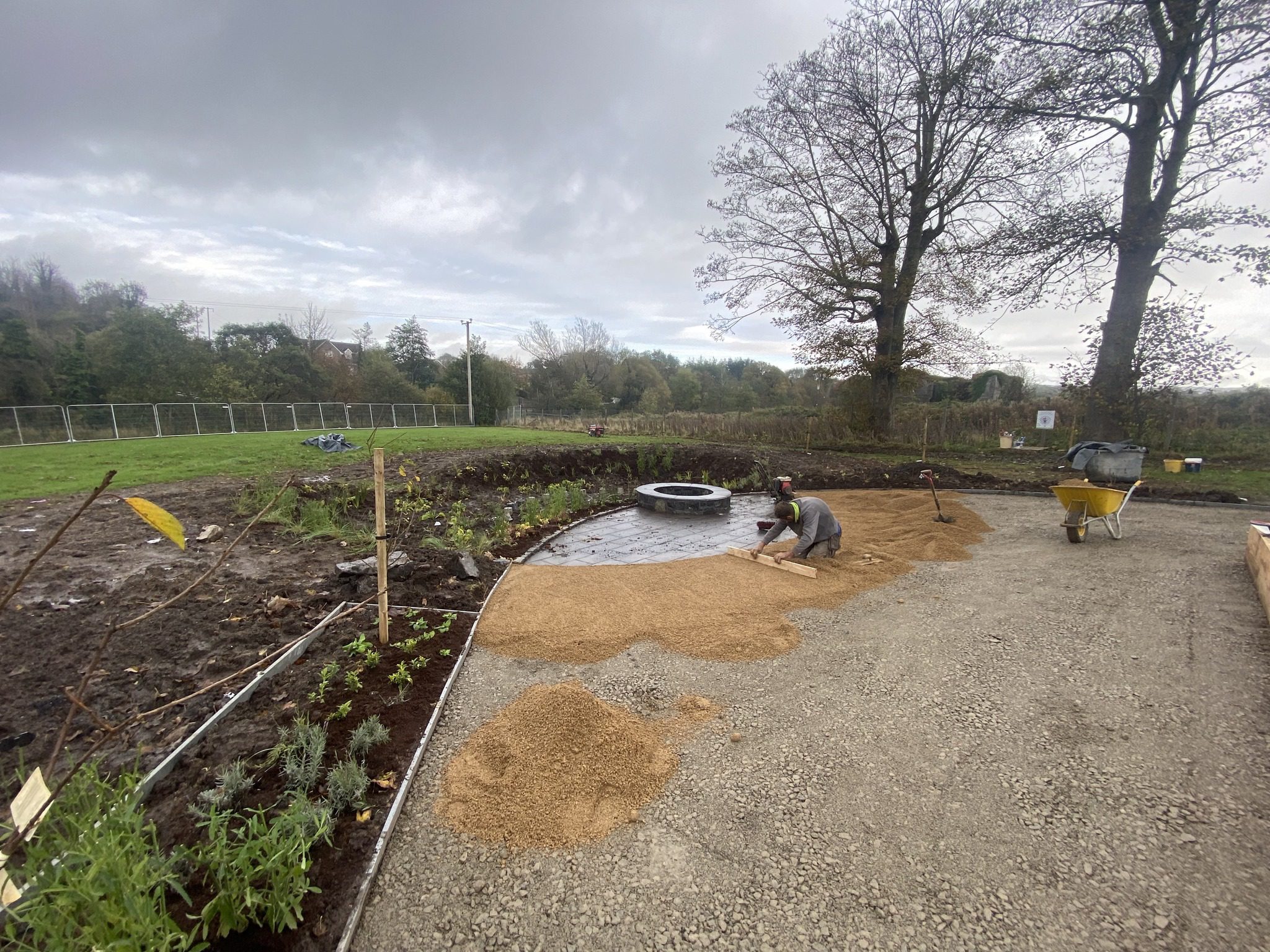Paradise Garden/
Accelerating Change Together
Project Details

Location(City/Country):
Greenhills, Ballina, Co. Mayo / Ireland
Tipology:
Landscape
Year (Design/Construction):
- / 2022
Area (Net/Gross):
90 m2 / -
Operational Carbon emissions (B6) kgCO2e/m2/y:
-
Embodied Carbon emissions (A1-A3) kgCO2e/m2:
-- Community awareness was raised through the project about sustainable design strategies.
- Provides a new haven for native flora and fauna.
- Sets a precedent for the importance and viability of biophilic design projects at a community level.
Ripple proposes a collaborative place-based approach to climate resilient green space in towns. The team worked with a community in Ballina (Ireland) to see if a model of respectful support, listening and engagement could generate a positive ripple-effect. Together they created the Paradise Garden, a haven for humans and wildlife where rainwater is slowed through a series of rills, wells and natural attenuation on its way to the adjacent river.
Public green spaces, common in housing estates throughout Ireland, represent a significant untapped resource for climate action, through their potential transformation as water resilient, productive and socially cohesive public space.
Ripple was one of fifteen projects supported by the first Creative Ireland Climate Action Call. The aim was to trial a collaborative place-based approach to climate resilient green space in towns, with a specific focus on water. The project team worked with a community in Ballina to demonstrate how inclusive co-design could support local action-based climate initiatives. A core tenet of climate resilience is to “leave no person or place behind”. The research team was keen to trial this approach with a community that had faced socio-economic challenges to see if a model of respectful support, listening and engagement could generate a positive ripple-effect.
The project involved Storymapping, Co-Design, Making and Evaluation stages. During Storymapping we gathered the experiences and perspectives of residents about water, and the use and users of their neighbourhood green spaces. In the next stage, 16 prospective ideas were co-designed, and subsequently voted upon, to select one idea to implement. The preferred idea – the Paradise Garden – built in the 3rd stage of the project, is a climate friendly intergenerational amenity space and a haven for wildlife. It features a tree nursery for local oaks, heritage fruit trees, vegetable beds, pollinator friendly planting, and nature based play. Rainwater is slowed through a series of rills, wells and natural attenuation features on its way to the river. The project was evaluated through a participatory Ripple Effect Mapping process.
In 2023, the project was the first Irish winner of a New European Bauhaus Award under the category of Reconnecting with nature.
Project Credits:
The Ripple project team was a collaboration between:
UCD Centre for Irish Towns –
Orla Murphy School of Architecture Planning and Environmental Policy (APEP)
(Note: Orla is a member of the New European Bauhaus High Level Roundtable)
Dr Sarah Cotterill, UCD School of Civil Engineering
Dr Philip Crowe, UCD APEP and CIv.Eng.
Rebecca O’Malley, Project Coordinator based in UCD APEP
Ballina Green Towns –
Cllr Mark Duffy (Independent), Mayo County Council and Cathaoirleach of Ballina MD
Kevin Loftus, Architect, ACT
Visual Artist –
Ríonach Ní Néill, Ciotóg
Landscape Architect –
Roisín Byrne Nature Based Landscape Architecture
Construction –
Kilcross Construction
Shaws Garden Centre
ABC of Gardening
Alan Merdith Studio Joinery
Contributors and local stakeholders –
The Greenhills Community
Martin McGarrigle, River Ecologist
The Karen Community Garden
St Muredach’s Secondary School










